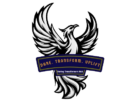Let’s Get Real About Public Speaking
If your hands tremble and your heart races at the thought of public speaking, welcome to the club. You’re not weak. You’re not broken. You’re just human.
Most public speaking tips sound like this: “Just picture the audience in their underwear!” or “Confidence is key!” As if saying that magically fixes sweaty palms and shaky voices.
Spoiler: it does not.
The truth is that stage fright feels like your brain betraying you, your memory going blank, and your body wanting to sprint for the nearest exit. I know this because I literally ran off the stage once.
And yet, years later, I speak in front of thousands without my knees buckling. Not because I was born confident. Not because I found a trick. But because I learned how to face it, fail at it, and still keep showing up.
My First Public Speaking Disaster
Let me take you back.
I was in the 2nd standard, a scrawny kid with big dreams and a bigger voice. The competition was a poem recitation of William Wordsworth’s “The Solitary Reaper.” I had practiced it with my elder brother until I could almost say it in my sleep.
The day came. My name was called. I marched to the stage like a warrior child. Adjusted the mic. Took a deep breath. And started strong:
“Behold her, single in the field,
Yon solitary Highland Lass…”
For the first few lines, I was unstoppable. Then curiosity got the better of me. I looked up.
Big mistake.
A sea of faces. Some smiled politely, some looked bored, and some stared at me like I was the afternoon entertainment. In the front row sat the judges, stone-faced with pens in hand. And just beside them stood my principal, arms folded, wearing the kind of look that says, “Do not mess this up, kid.”
My heart thumped. My brain froze. The last three stanzas of the poem? Gone. Completely deleted from my memory.
So, I stood there. And stood there. And stood there.
The audience shifted. First whispers, then giggles, then outright laughter. My principal even motioned me to get off the stage, but no. I was convinced that if I stayed frozen long enough, the lines would magically come back. They did not.
Finally, burning with embarrassment, I bolted off the stage. My cheeks were on fire. My stubbornness is in shambles.
That was my debut as a public speaker. Running away mid-performance.
Why I Did Not Quit
Most people would have stopped right there. That kind of shame at age seven can scar you for life.
But here is the thing. Failure does not kill you. It dares you.
My brother did not let me wallow. My friends did not treat me like I was a joke. And deep down, something in me refused to let that moment define me.
So, I tried again. And again. And again.
By the time I was older, I was standing on stages without flinching. By adulthood, I had spoken to crowds of thousands. The stage that once made me run away had become the stage I owned.
If that terrified little kid can do it, so can you.
A Rebel’s Guide to Starting Public Speaking (Without Pretending It’s Easy)
Let us cut the clichés and talk about what actually helps beginners.
1. Fear Is Not the Enemy. Silence Is.
You are not going to magically “get over” fear. Your voice might shake, your palms might sweat, and that is okay. The only real failure is staying silent. Speak anyway.
2. Do Not Aim for Perfect. Aim for Real.
Forget polished, robotic speeches. People do not connect with flawless. They connect with truth. If you stumble, laugh it off. If you forget a line, rephrase it. Connection beats perfection every time.
3. Start Small, But Start.
You do not need a TED stage. Speak at a team meeting. Tell a story to your friends. Volunteer to introduce someone at an event. Small wins stack into big confidence.
4. Know Your Story, Not Just Your Script.
Memorizing lines is fragile. Forget one and you crash. Ask my 2nd-grade self. But if you own the story, why it matters, what it means, you can always find your way back.
5. Use Your Body Like Armor.
Stand tall. Plant your feet. Breathe. Move your hands naturally. When your body looks steady, your brain starts to believe it.
6. Fail Publicly. Learn Privately.
Bomb a speech? Good. That means you are in the game. Take feedback, laugh at yourself, and get back up. Every great speaker has a graveyard of failed speeches behind them.
7. Find Your Tribe.
Join a group where everyone is learning. Speaking gets easier when you are doing it with a group.
The Emotional Truth About Public Speaking
Public speaking is not just about words. It is about courage. It is about standing up when your knees want to buckle. It is about saying, “Here I am. Here is my voice. Take it or leave it.”
When you speak, you are not just filling silence. You are giving people a piece of yourself, your story, your humor, your truth.
And let us be real. The world does not need another polished robot at the podium. It needs more raw, authentic voices. It needs yours.
So even if you tremble, speak anyway. If your heart is racing, let it race. Every step on stage counts because your voice is bigger than your fear. You have a higher calling to share it.
Final Words: From Stage Fright to Stage Freedom
I once stood frozen on stage, laughed at, and ran away red-faced. That was my beginning.
Today, I speak without fear. Not because I was born confident, but because I kept showing up when it was messy, humiliating, and hard.
So, if you are scared, good. That means you care. That means you have something worth saying.
Now get up there and say it.
The mic is not just for the confident ones. It is for you too.
The stage does not belong only to the confident ones. It belongs to you, too.
Ready to Take the First Step?
If you have been waiting for a sign to finally face your fear of public speaking, this is it.
Fill out the form below, and let us start building your courage, your voice, and your stage presence.

